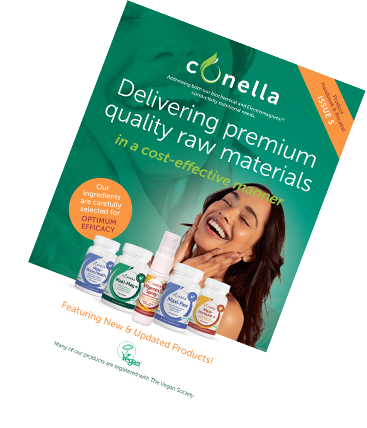According to a study that was recently published in Nutrition Research, it is likely that daily supplementation with anthocyanins (a compound found in bilberries and blackcurrants) could be beneficial for those who suffer from metabolic syndrome (high blood pressure, abdominal obesity, high serum triglycerides, high blood sugar, and low serum high-density lipoprotein (HDL).
The syndrome, which is often linked to obesity, hypertension, and problems with glucose and insulin metabolism, has been found to put sufferers at a greater risk of certain serious health issues, including type two diabetes and cardiovascular diseases.
However, the study, which was conducted in Australia, discovered that supplementing with a 640mg daily dose of anthocyanins for a four-week period brought about reductions not only in the average serum fasting blood glucose, but also triglyceride and LDL-cholesterol too.
For women included in the study, there was also a decrease in levels of high sensitivity reactive protein of roughly 28 percent on average.
This led the scientists involved to conclude that anthocyanin intervention can have a notably positive impact on cardiovascular health, reducing cardio-metabolic risk factors while also improving platelet activity.
The experts leading the research therefore suggested that berry-rich anthocyanins could potentially be used as a preventative measure, to hopefully halt the progression of atherosclerosis among metabolic syndrome sufferers.
How the study was conducted
While the research produced by this study is not definitive, it raises some interesting possibilities with regards to the use of anthocyanins as a potential management tool for metabolic syndrome sufferers.
That being said, greater numbers and a placebo control group would first have to be used within these trials in order to lend more credence to the findings. That’s because the existing study was conducted on only 55 people.
Aged between 25 and 75, these individuals fell into one of two categories: they either suffered with metabolic syndrome or were seemingly well and healthy. Both groups were given the supplement for a period of four weeks, with their cardio-metabolic biomarkers being measured at both the beginning and end of the research.
What this revealed was that as well as beneficial changes in LDL cholesterol and triglyceride levels, anthocyanin supplementation appeared to reduce total cholesterol levels by around 14 percent among all participants.
In addition, those who suffered from metabolic syndrome also experienced decreased ADP-induced platelet activation configuration, with this number falling by around 40 percent.
Researchers thus concluded that the use of anthocyanin supplements helped to mitigate biomarkers of platelet hyper-activation and hyper-aggregation among those suffering with metabolic syndrome, and in doing so reduced cardio-metabolic risk factors to contribute to healthy aging and greater longevity.
Listen to David Greens podcast entitled "The Benefits of Antioxidants"
Interesting reading:
Nutrition and lifestyle Strategies to Support Your Immunity
Could a good daily intake of antioxidants unlock the secret to greater longevity?










